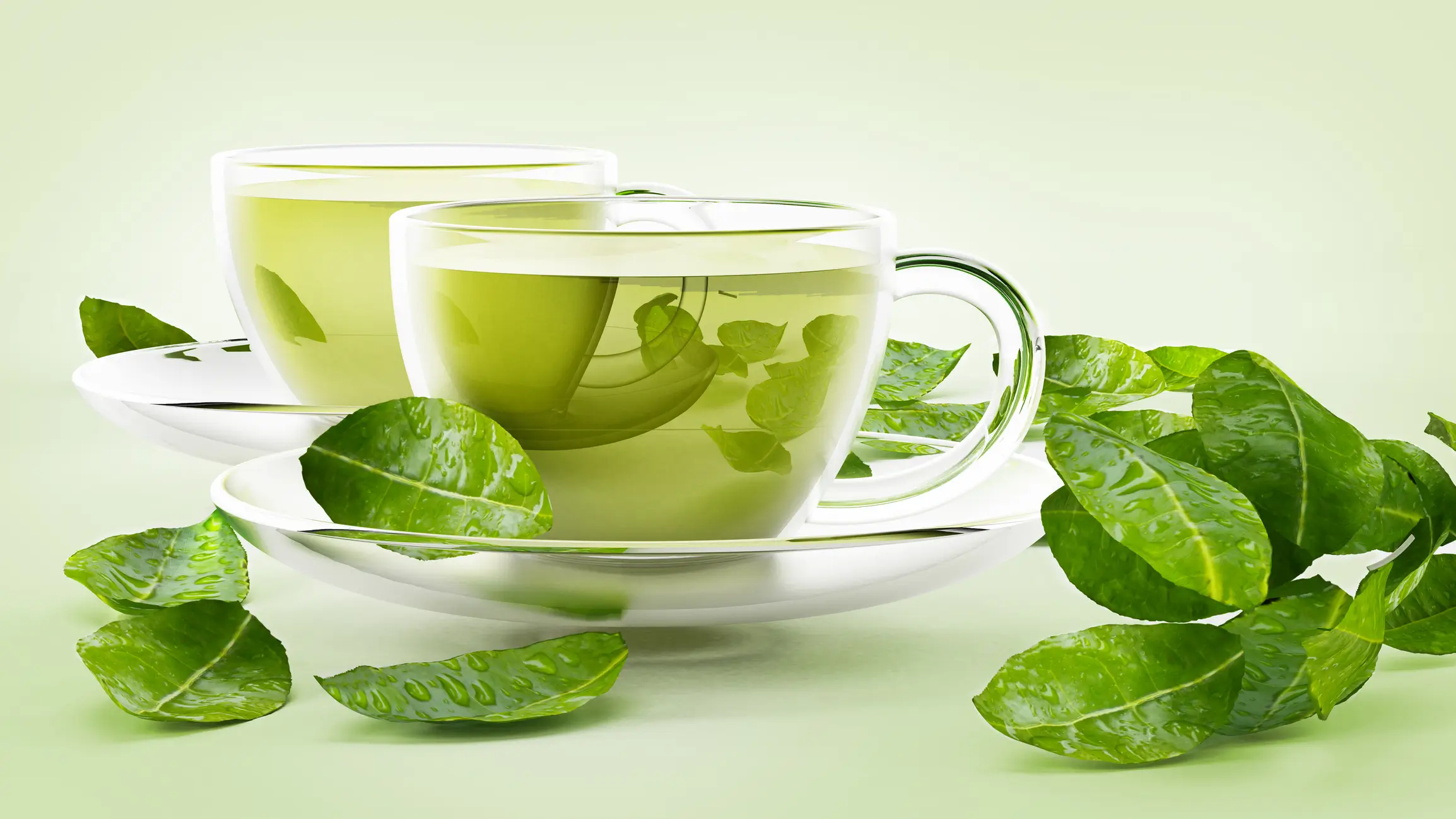Hello, my fellow tea enthusiasts! Green tea should be your new best friend if you’re on a quest for better health and wellness.
This ancient beverage has been revered for centuries in many cultures, and modern science is catching up, revealing its incredible array of benefits.
From aiding weight management to potentially reducing the risk of chronic diseases, green tea is a true powerhouse that deserves a spot in your daily routine.
In this comprehensive guide, we’ll dive deep into the science behind green tea’s remarkable properties, dispel any myths, and provide you with practical tips to make the most of this incredible superfood.
So, grab a cup of your favorite green tea blend, and let’s embark on a journey that might just change your life!
Understanding Green Tea’s Antioxidant Prowess
At the heart of green tea’s superpowers lies a potent antioxidant called epigallocatechin gallate (EGCG).
This mighty compound, along with other antioxidants found in it, acts as a formidable shield against harmful free radicals in our bodies.
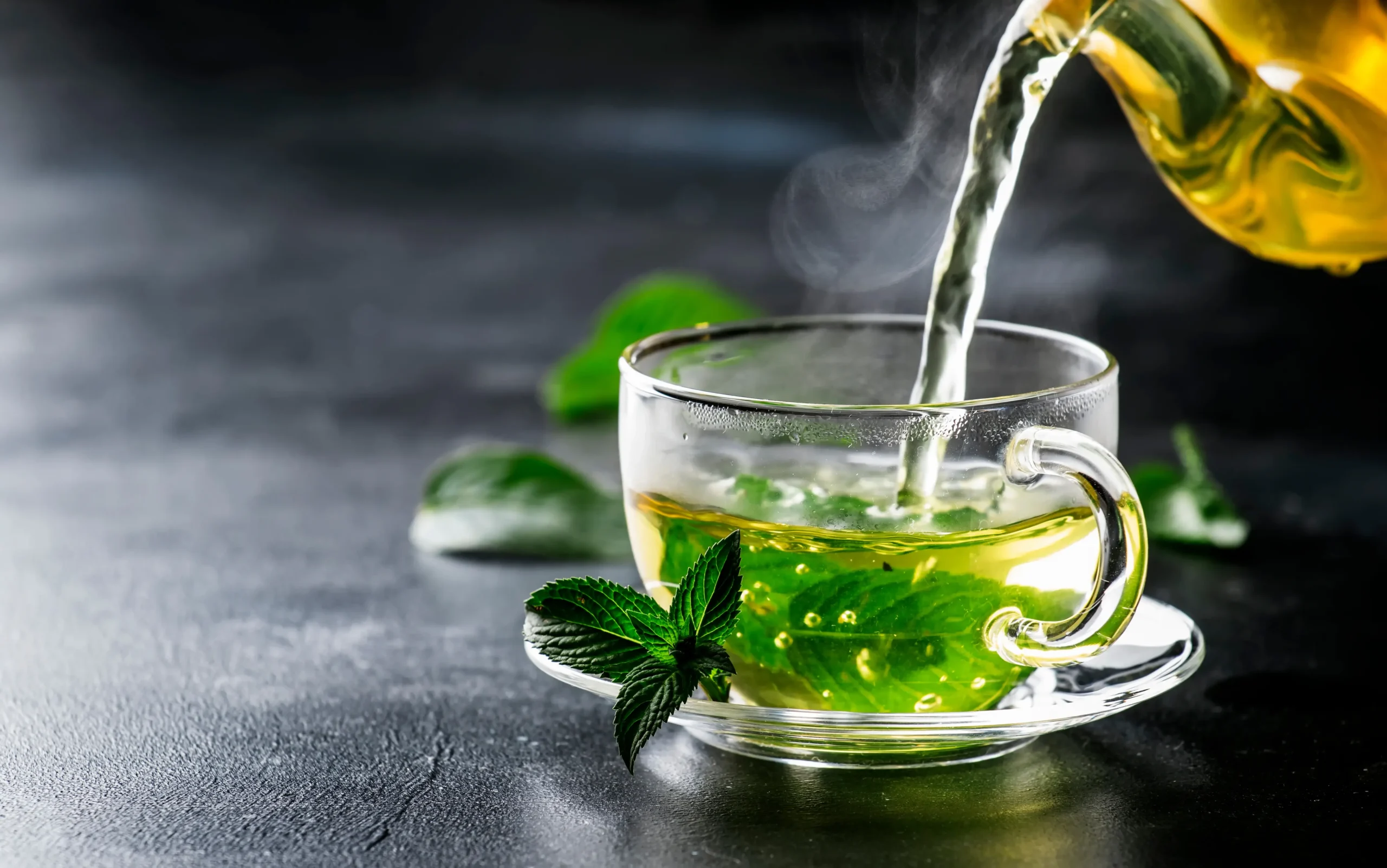
Free radicals are unstable molecules that can wreak havoc on our cells, contributing to various health issues, including cancer, heart disease, and premature aging.
By neutralizing these pesky free radicals, its antioxidants help protect our cells from oxidative stress and inflammation, two major culprits behind many chronic diseases.
Boosting Metabolism and Fat Burning
Green tea could be your secret weapon if you’re on a mission to shed a few pounds or maintain a healthy weight.
You see, this magical brew contains a unique combination of caffeine and catechins (those powerful antioxidants we talked about earlier) that can give your metabolism a gentle nudge.
Here’s how it works: the caffeine in green tea can temporarily increase your body’s energy expenditure, while the catechins, particularly EGCG, have been shown to enhance fat oxidation (the process of breaking down stored fat for energy).
But that’s not all! It may also help regulate appetite and promote feelings of fullness, making it easier to control your calorie intake.
Studies have suggested that the combination of caffeine and EGCG can suppress the production of ghrelin, a hormone that stimulates appetite.
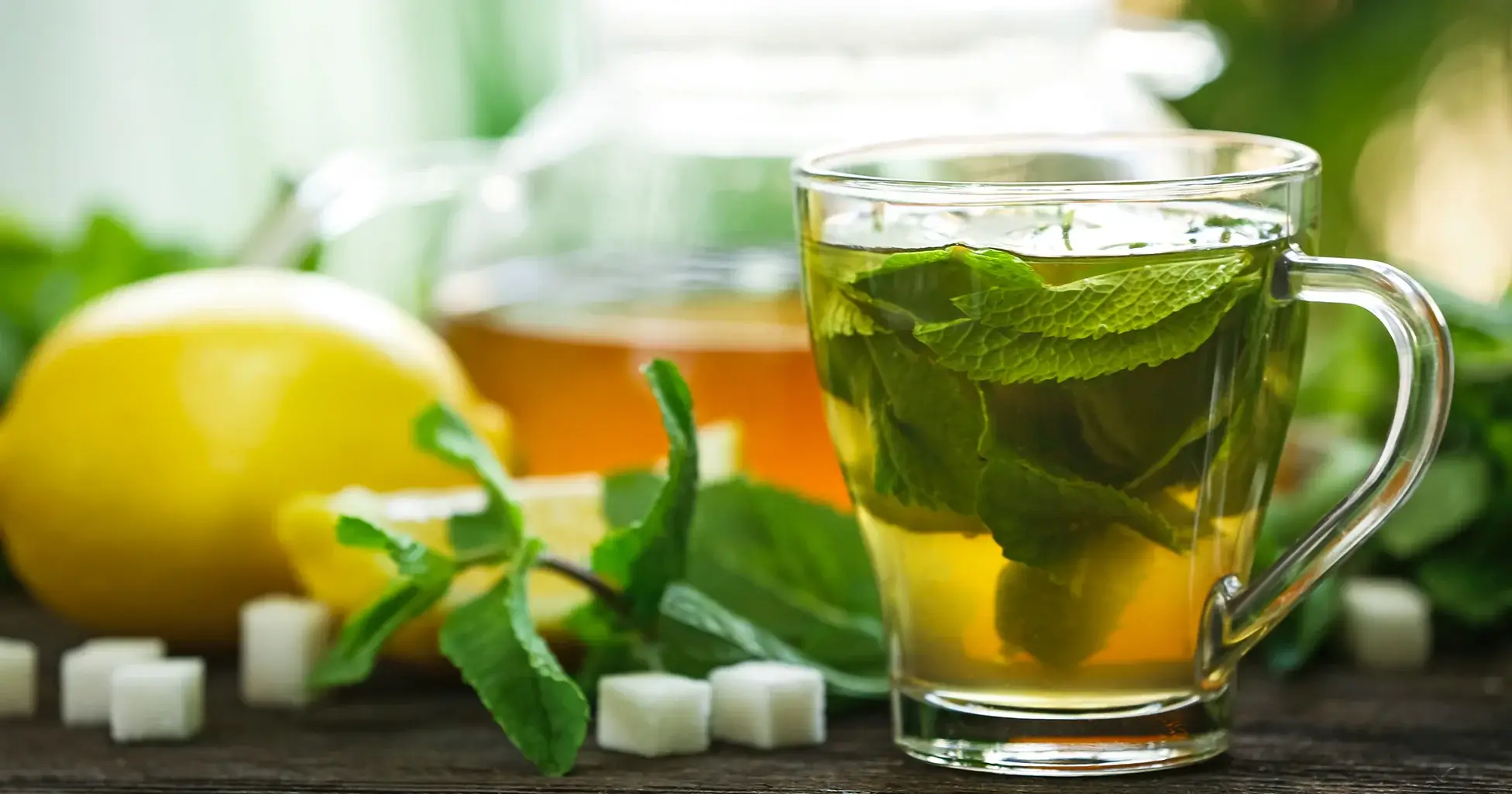
Now, let’s be real – green tea isn’t a magic weight loss pill.
But when paired with a balanced diet and regular exercise, it can certainly lend a helping hand in your journey to a healthier body composition.
Brain Booster and Mood Enhancer
If you’re feeling a little foggy-headed or stressed out, a cup of green tea might just be the pick-me-up you need.
You see, this incredible beverage contains a dynamic duo of compounds that can enhance your cognitive function and improve your mood: caffeine and L-theanine.
The caffeine in green tea provides a gentle energy boost, helping you stay alert and focused without the jittery side effects often associated with coffee.
But it’s the L-theanine, an amino acid found in green tea, that really sets it apart.
L-theanine has been shown to increase activity in the alpha frequency band of the brain, promoting a state of relaxed alertness.
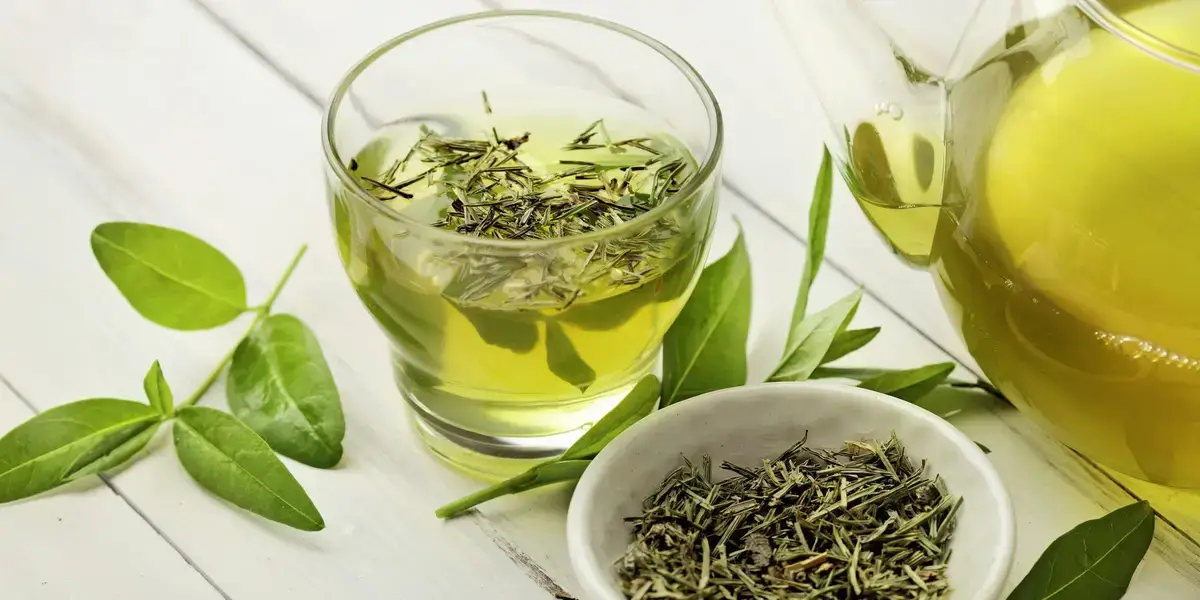
This means that you can enjoy the cognitive benefits of caffeine without the accompanying anxiety or restlessness.
Studies have suggested that the synergistic effects of caffeine and L-theanine can improve various aspects of brain function, including memory, reaction time, and attention span.
Cancer-Fighting Powerhouse
While more research is still needed, various studies have suggested that regular green tea consumption may play a role in reducing the risk of certain types of cancer, including breast, prostate, and colorectal cancer.
The antioxidants in green tea, particularly EGCG, have been shown to possess anti-cancer properties.
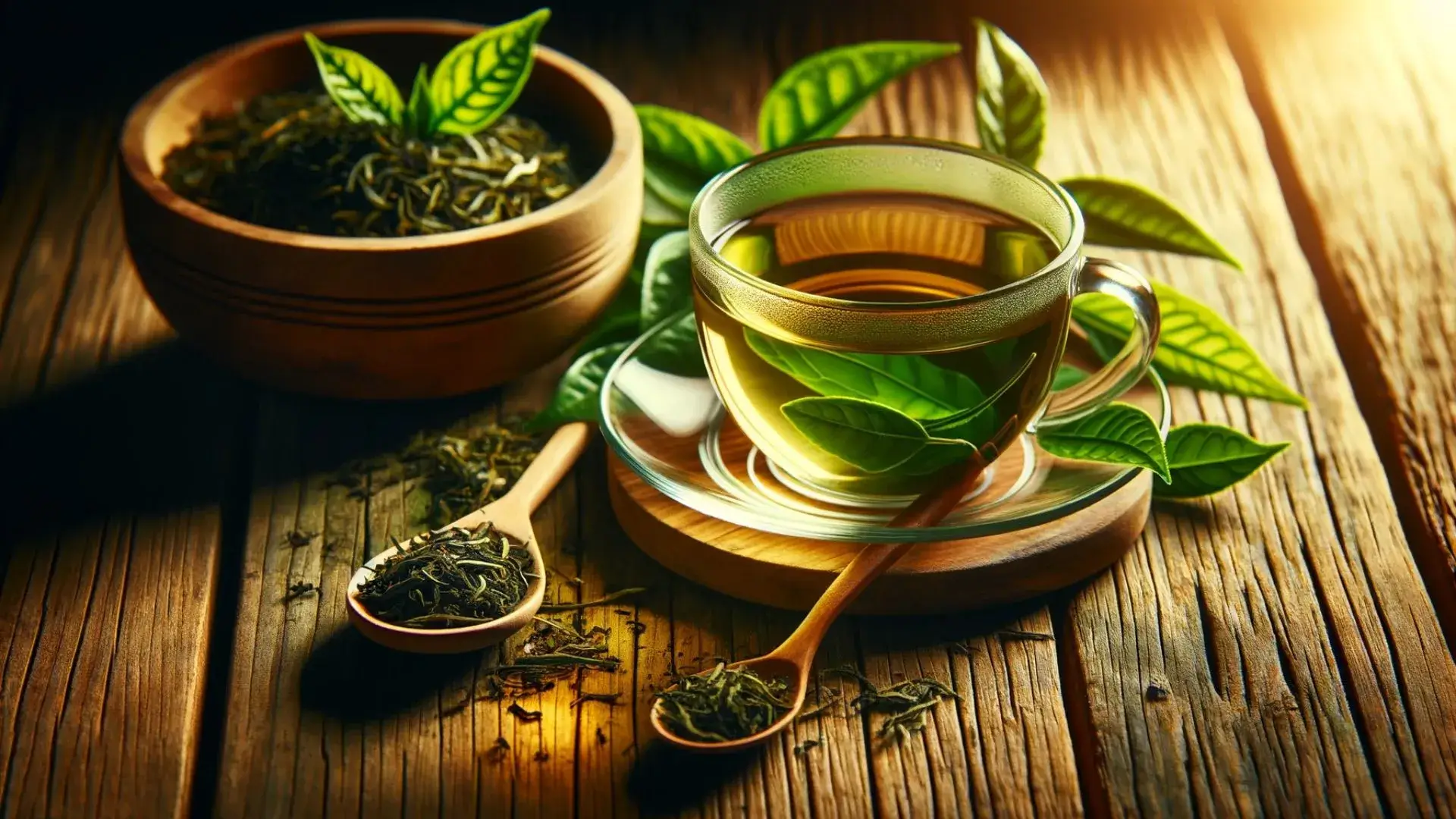
These powerful compounds may help prevent the formation and growth of cancerous cells, as well as inhibit the development of new blood vessels that feed tumors (a process known as angiogenesis).
It’s important to note, however, that green tea is not a magical cure for cancer.
Rather, it should be viewed as part of a comprehensive approach to cancer prevention that includes a healthy diet, regular exercise, and avoiding known risk factors like smoking.
Improving Cholesterol and Blood Pressure
Green tea’s superpowers extend to your heart as well!
Research has shown that regular consumption of this mighty beverage may help improve cholesterol levels and blood pressure, two major risk factors for heart disease.
The antioxidants in green tea can help prevent the oxidation of LDL (bad) cholesterol, which is a key step in the development of plaque buildup in our arteries.
By keeping those pesky plaques at bay, green tea may help reduce the risk of heart attacks and strokes.
Additionally, the compounds in green tea have been shown to have a mild blood pressure-lowering effect, which can further contribute to a healthier cardiovascular system.
Radiant Skin and Youthful Glow
Who doesn’t want to look as fresh and radiant as a dewy spring morning? Well, green tea might just be the secret weapon you’ve been searching for!

Thanks to its antioxidant and anti-inflammatory properties, green tea can work wonders for your skin.
By neutralizing free radicals and reducing inflammation, it can help protect your skin from premature aging, sun damage, and even certain skin conditions like acne and eczema.
Some people even use cooled green tea as a toner or facial mist, allowing its nourishing compounds to work their magic directly on their skin.
Stronger Bones and Joints
As we age, our bones and joints can start to feel the wear and tear of life’s adventures.
But fear not, green tea enthusiasts, because this incredible brew might just be the key to keeping your skeletal system strong and resilient.
Studies have shown that the compounds in green tea may help promote bone health by increasing bone mineral density and reducing the risk of osteoporosis.
Additionally, the anti-inflammatory properties of green tea may help alleviate joint pain and inflammation associated with conditions like arthritis.
So, whether you’re an avid hiker, a weekend warrior, or simply want to keep your bones and joints in top shape, incorporating green tea into your daily routine could be a wise choice.
Boosted Immune System
In today’s fast-paced world, it’s crucial to have a robust immune system that can fend off all sorts of bugs and nasties.
And guess what? Green tea might just be the secret weapon you need to keep your body’s defense system in tip-top shape.

The antioxidants and anti-inflammatory compounds in green tea have been shown to support a healthy immune response.
By neutralizing free radicals and reducing inflammation, green tea may help your immune cells function more effectively, giving you a better chance at fighting off infections and illnesses.
So, the next time you feel a cold or flu coming on, reach for a steaming cup of green tea and let its immune-boosting powers work their magic.
Better Digestion and Gut Health
Let’s talk about something we all deal with daily – digestion! Green tea might just be the ticket to a happier, healthier gut.
The polyphenols in green tea have been shown to have a prebiotic effect, meaning they can promote the growth of beneficial gut bacteria.
These friendly bacteria play a crucial role in maintaining a healthy digestive system, aiding in nutrient absorption, and even supporting our overall immune function.
Additionally, green tea may help soothe digestive issues like bloating, gas, and even diarrhea, thanks to its anti-inflammatory properties.
So, if you’ve been dealing with tummy troubles, consider adding a cup (or two) of green tea to your daily routine and let it work its magic from the inside out.
Is Pine Needle Tea Good for You?
Exploring Green Tea Varieties
Not all green teas are created equal! While they all share the same base – the leaves of the Camellia sinensis plant – various processing methods and growing regions can result in different flavors, aromas, and potentially even health benefits.
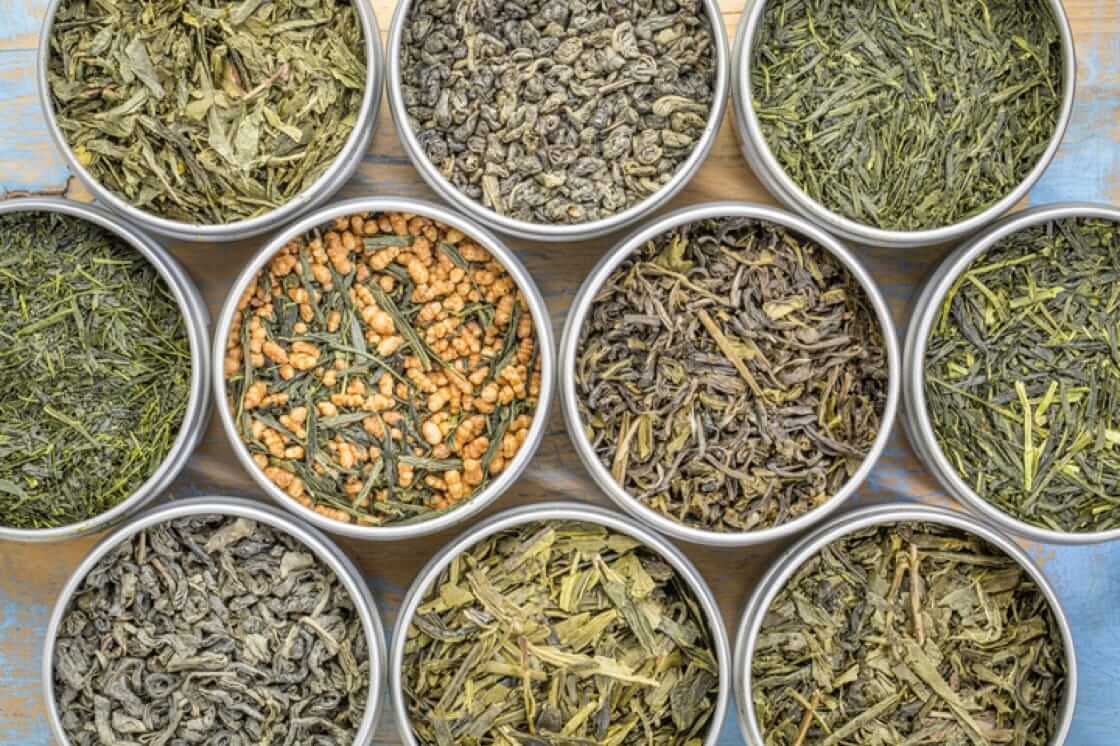
Here’s a quick rundown of some popular green tea varieties:
- Sencha: This classic Japanese green tea is known for its vibrant green color, fresh grassy aroma, and slightly sweet and nutty flavor. It’s one of the most widely consumed green teas in the world.
- Matcha: Made from finely ground whole green tea leaves, matcha is a powerhouse of antioxidants and nutrients. It has a rich, earthy flavor and vibrant green color. Matcha is often used in traditional Japanese tea ceremonies and has gained popularity in recent years for its potential health benefits and unique taste.
- Gunpowder: Named for its tightly rolled leaf shape that resembles gunpowder pellets, this Chinese green tea has a slightly smoky aroma and robust flavor. It’s known for its potential to aid digestion and promote weight loss.
- Dragonwell (Longjing): Originating from the Zhejiang province of China, this famous green tea is known for its flat, pan-fired leaves and chestnut-like aroma. Dragonwell is prized for its delicate, nutty flavor and potential to reduce inflammation.
- Hojicha: A unique Japanese green tea that is roasted over charcoal, giving it a toasty, caramel-like flavor. Hojicha is lower in caffeine than other green teas and is often enjoyed for its comforting taste and potential to promote relaxation.
While the specific health benefits may vary slightly between varieties, all green teas are rich in antioxidants and offer a range of potential advantages for overall well-being.
Is Fruit Tea Good for You?
Brewing Tips for Green Tea
To truly experience the full potential of green tea, it’s essential to brew it correctly.
Improper brewing techniques can lead to a bitter, astringent taste and potentially diminish the tea’s health-promoting properties.
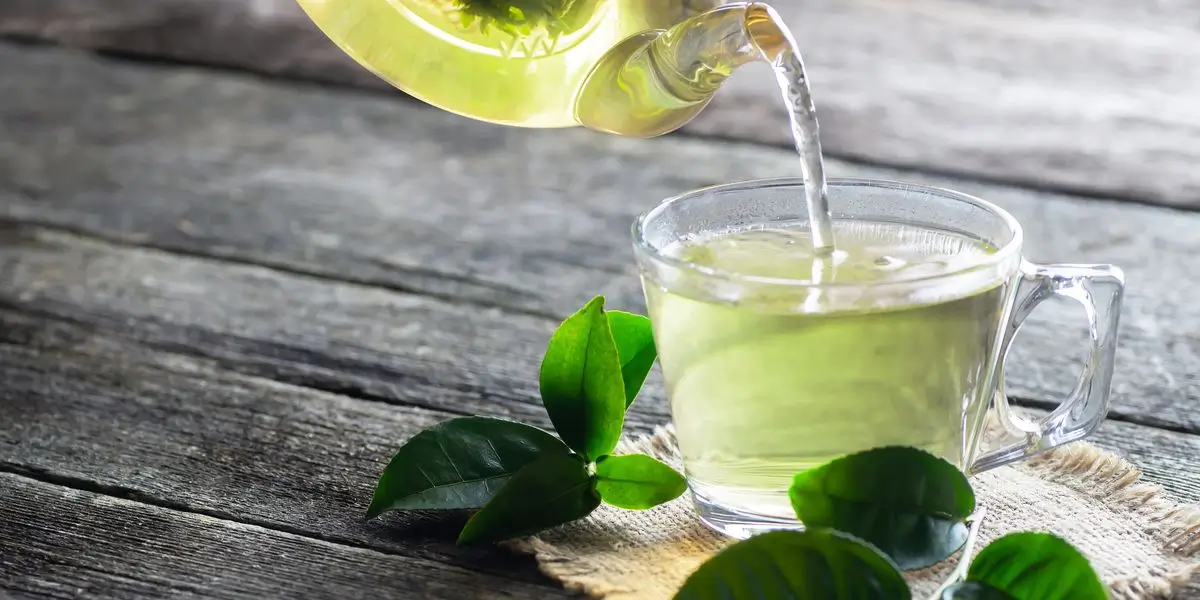
Here are some tips for brewing the perfect cup of green tea:
- Water Temperature: Green tea should be brewed with water that’s around 160-180°F (71-82°C). Water that’s too hot can cause the tea to become bitter and astringent.
- Steep Time: For most green teas, a steep time of 2-3 minutes is recommended. Steeping for too long can lead to an overly strong and bitter flavor.
- Tea to Water Ratio: As a general guideline, use 1 teaspoon of loose-leaf green tea or 1 tea bag per 8 ounces (237 ml) of water.
- Loose Leaf vs. Tea Bags: While both can produce a quality cup of green tea, many tea enthusiasts prefer loose-leaf varieties for their superior flavor and aroma.
- Multiple Infusions: Many high-quality green teas can be infused multiple times, allowing you to enjoy their flavors and benefits throughout the day.
By following these simple brewing guidelines, you’ll be able to unlock the full potential of green tea’s flavor and health-promoting compounds.
Potential Side Effects of Green Tea
While green tea is generally considered safe for most people when consumed in moderation, it’s important to be aware of potential side effects and interactions, especially if you’re sensitive to caffeine or have any underlying health conditions.
Caffeine Sensitivity
Green tea contains caffeine, although typically less than black tea or coffee.
Those sensitive to caffeine may experience side effects like jitters, headaches, or difficulty sleeping if they consume too much green tea.
Is Chai Tea Good for You?
Pregnancy and Breastfeeding
Due to limited research, WebMD generally recommends that pregnant or breastfeeding women consume no more than 2 cups of green tea per day.

Medication Interactions
Green tea may interact with certain medications, including some blood thinners, chemotherapy drugs, and medications for heart conditions or high blood pressure.
If you’re taking any prescription medications, it’s best to consult with your healthcare provider before incorporating green tea into your diet.
Liver Health
While rare, there have been some reports of liver damage associated with the consumption of green tea supplements or extremely high doses of green tea.
Moderation is key, and those with liver conditions should consult their doctor before consuming green tea supplements.
It’s also important to note that while green tea offers numerous potential health benefits, it should not be viewed as a replacement for a balanced diet, regular exercise, and professional medical advice.
Is Tapee Tea Good for You?
Summary
Phew, that was quite a journey through the wondrous world of green tea! As you can see, this humble beverage packs a powerful punch when it comes to promoting overall health and well-being.
From boosting metabolism and aiding weight loss to reducing the risk of chronic diseases, supporting cognitive function, and promoting radiant skin, green tea truly is a superfood in a cup.
And let’s not forget its potential to enhance bone and joint health, boost immunity, and improve digestion!
By understanding the science behind green tea’s incredible antioxidant properties and exploring the various varieties, brewing methods, and potential safety considerations, you can confidently incorporate this amazing beverage into your daily routine.
So, what are you waiting for? Brew yourself a steaming cup of green tea and let its incredible benefits work their magic. Your body (and taste buds) will thank you for embracing this ancient elixir of health and vitality.

